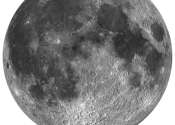1,000-plus years of tree rings confirm historic extremity of 2021 western North America heat wave
In summer 2021, a stunning heat wave swept western North America, from British Columbia to Washington, Oregon and beyond into other inland areas where the climate is generally mild. Temperature records were set by tens of ...









